The Centre for Digital Healthcare Technology will provide a world-class space for academia, industry and clinicians to come together to innovate and boost the productivity of the Life and Health Sciences sector, as well as medical device and related sector activity in Northern Ireland.
Ulster University will create an enhanced capability and world class space / innovation accelerator for academia, industry and clinicians to come together to innovate and boost the productivity of the healthcare technology sector in Northern Ireland.
For the first time it will bring together internationally leading Computing-SERG (AI to IOT), Engineering-NIBEC (Health Tech. to Connected Health) and Biotechnology strengths (Molecular Diagnostics) leading to impactful multidisciplinary research focused on many of the world’s key challenges including rising healthcare costs and healthy ageing.
This project will be a close partnership between healthcare professionals, researchers and industry professionals and will result in an increase in digital healthcare technology products being launched in Northern Ireland. These products will have an improved product market fit, scale globally faster and have a lower failure rate compared to the status quo.
A key aspect of the proposed cluster is the partnership approach which will encompass and enhance the existing cardiology-based pilot clinical Living Lab at the Royal Victoria Hospital (Belfast Trust). In the longer term, the expectation is that the scope of the Living Lab will be expanded into new areas including the treatment of respiratory conditions, ophthalmology stroke and diabetes.
The CDHT will see the development of an integrated three-way co-creation platform (private sector, university and hospital health professionals) for the health and life sciences sector that will provide the basis for a partnership working to jointly identify accelerated productivity opportunities for improved healthcare pathways with hospitals or homebased care and to support the realisation of commercial market solutions at a faster rate than is currently being achieved.
This will grow on the already established eco systems set up via the Connected Health Innovation Centre; ECHA and other local and international systems.
The CDHT will also be a focal point for a digital healthcare technology cluster called the Digital Healthcare Technology City District which will comprise relevant companies, academic centres and public / private healthcare organisations.
The Centre will create a cluster of medical device and technology companies that, through a supportive and collaborative eco system of co-location and working, will build the size and value of the sector. This will see increased levels of commercially successful innovation that leads to tangible benefits of increased sales by cluster companies, a health technology related accelerator programme, increased skill set and enhanced opportunities for graduates in the region.
The CDHT will further enhance the Belfast region’s reputation as a world-class centre for digital healthcare technology, making it the location of choice for increased levels of R&D and global FDI.
The centre will allow a soft landing for FDI companies offering top class facilities, access to expertise, equipment and, combined with market validation, allowing them to scale and grow rapidly.
The concept has received support from world leading companies such as Dell, Microsoft and BT who are keen to invest in the centre to boost research capability, integration and innovation productivity.

Ulster University
Ulster University
Professor Jim McLaughlin, OBE
Position: Head of School of Engineering & Director of the Nanotechnology and Integrated Bioengineering Centre (NIBEC)
Address: NIBEC, Ulster University, Shore Road, Newtownabbey, BT37 0QB
